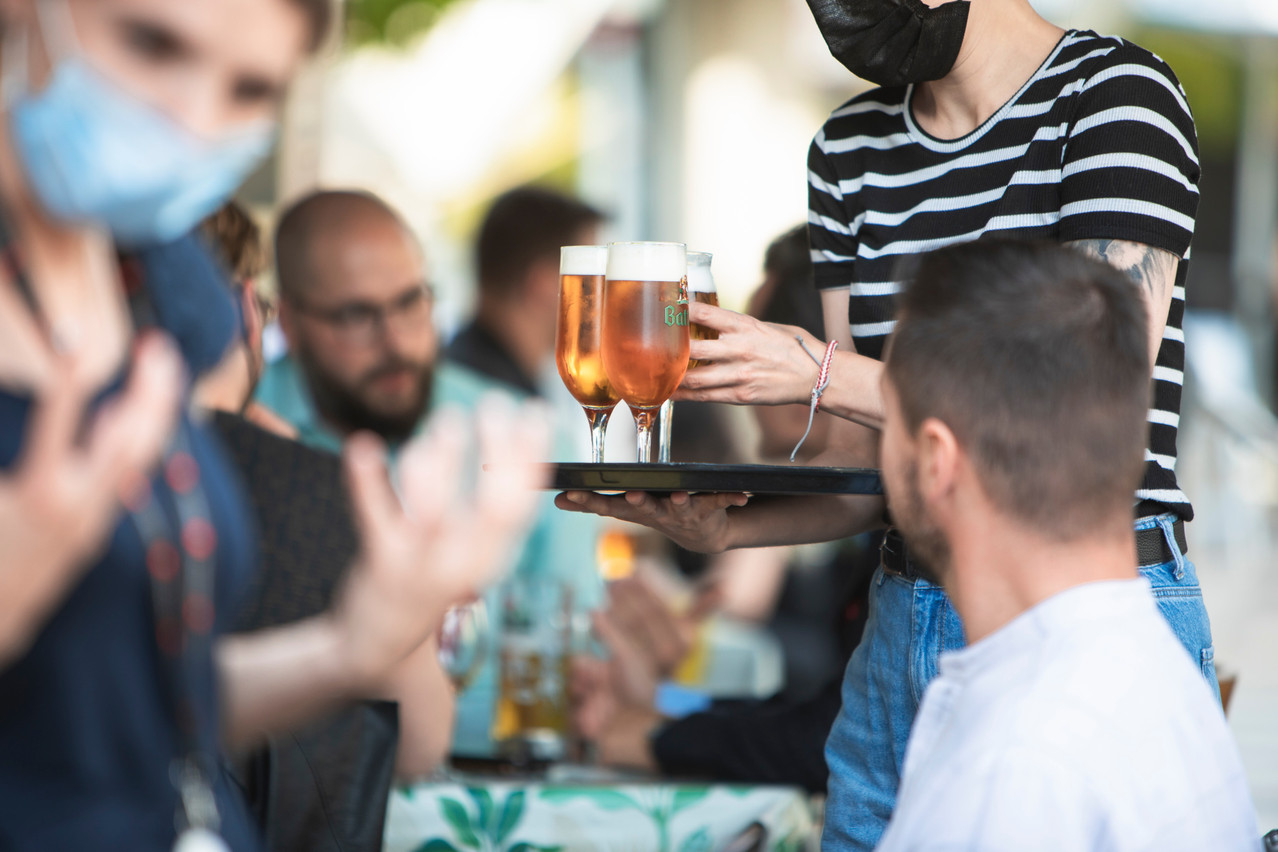Engel, who replaces Dan Kersch (LSAP) in the position of labour minister, considered that the state had performed well in helping the economy during covid as he cited unemployment numbers that have falled to pre-pandemic levels, A total of €1.2bn was distributed to 15,000 employers during the pandemic--affecting 160,000 employees--and though some businesses received too much, 97,95% of the excess had been reimbursed the minister explained.
A gradual decrease
Over the next months, businesses in vulnerable sectors will see their partial unemployment aid reduced. Parts of the hospitality sector will still be granted 20% of working hour coverage for partial unemployment in March and April, and 10% in May and June. Hotels will have 40% for March and April, which will fall to 30% in May and June. “It’s a generous system,” argues Franz Fayot, saying that businesses will have enough time to observe and adapt to the changes.
This all means that state aid to so-called vulnerable sectors--those that have been affected directly by the sanitary restrictions--will cease for the most part by the end of June 2022.
Currently, aids for job retention were extended until February 2022 for the hospitality sector, but also events companies, the taxi federation, travel agencies, training centres, the catering federation (Fedil catering) and the automobile distributors’ federation Fedamo. These could receive up to 25% of partial unemployment aid until the end of February, with the exception of nightclubs which could ask for 100% of work hours to be covered.
From 1 July, only businesses in the industry sector, which has benefitted from the aid since the 1970s, should still have access to the partial unemployment help.
Aid for uncovered costs and for recovery will also be cut off, though an exception will be made for restaurants, cafés, events organisers, culture, travel agencies and garages who can still benefit from the stimulus package until the end of June.
Lex Delles said: “We need to give businesses predictability” but argued that it is time to gear up for the post-crisis period. The gradual reductions should help wean businesses off the aids, while allowing them to survive the transition and adapt their business plan.
The announced strategy will, as all ministers underlined several times, only be applicable if sanitary restrictions concerning vulnerable sectors are lifted, and the situation doesn’t worsen.
At the moment, cafés, bars and restaurants have to close at 11pm, a measure strongly contested by the hospitality federation and bar owners.
